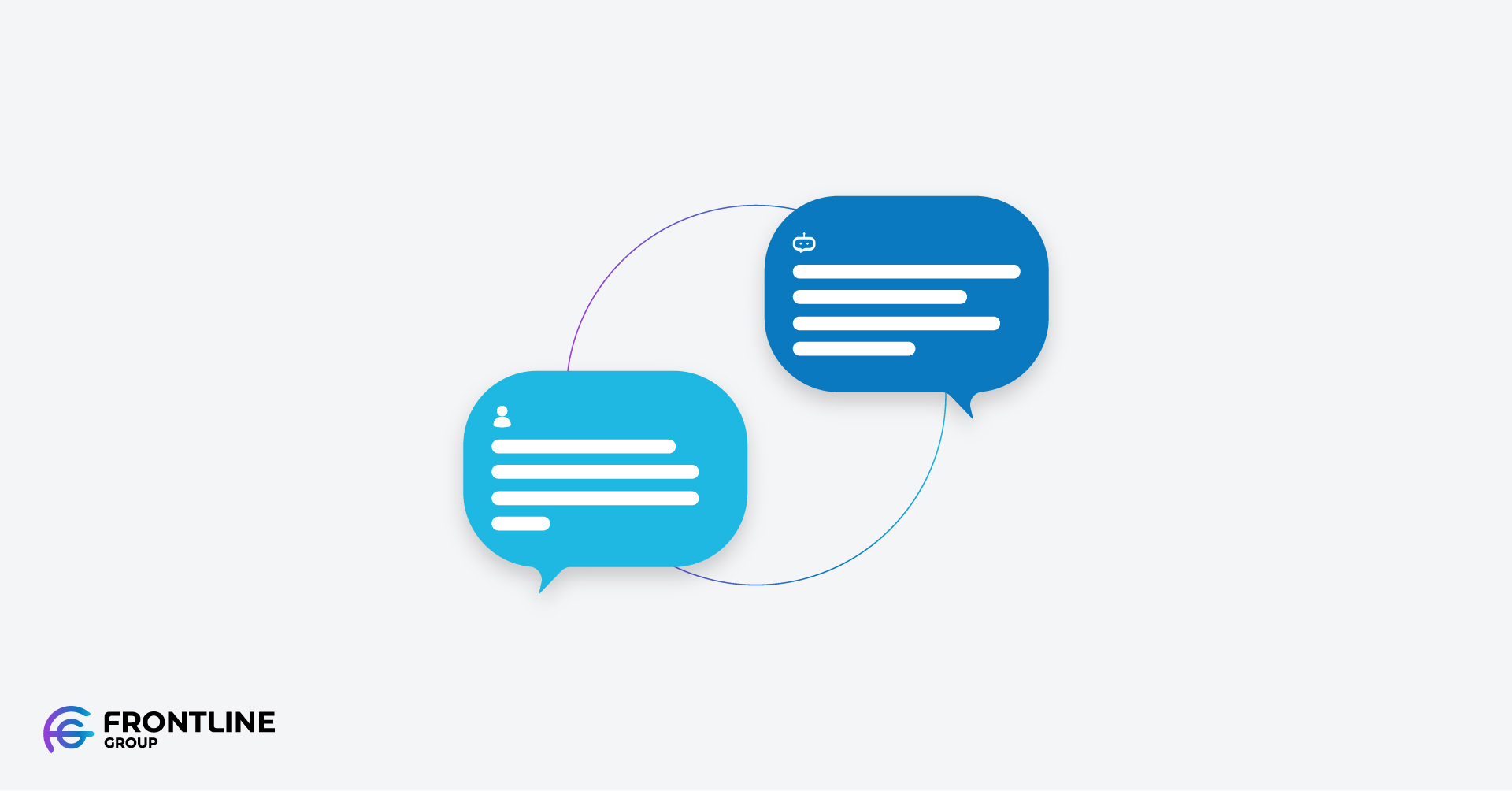
As technology continues to evolve, so does the landscape of customer support. In recent years, artificial intelligence (AI) has emerged as a transformative force within contact centers, helping businesses deliver faster, more efficient service while maintaining customer satisfaction. AI tools like chatbots, virtual assistants, and machine learning are now playing a pivotal role in streamlining operations, reducing response times, and personalizing customer interactions.
For businesses aiming to stay competitive, leveraging AI in contact centers is no longer just an option, it’s a necessity. The ability to provide round-the-clock support, process vast amounts of data in real time, and offer personalized service at scale is helping businesses meet rising customer expectations in today’s digital world. However, while automation brings significant benefits, it’s important to balance these advances with the human touch that remains essential for meaningful customer interactions.
Let’s explore how AI tools are transforming the future of customer support and how businesses can leverage these technologies to deliver enhanced customer experiences.
The Rise of AI in Contact Centers
The adoption of artificial intelligence (AI) in contact centers has been steadily growing as businesses recognize its potential to improve efficiency, enhance customer experiences, and streamline operations. Traditionally, contact centers relied heavily on manual processes where human agents handled every customer interaction. While effective in many cases, this approach often led to long wait times, inconsistent service quality, and limited scalability.
With AI, contact centers are undergoing a major transformation. Automation tools such as chatbots and virtual assistants are now handling routine tasks, answering frequently asked questions, and resolving simple customer inquiries without the need for human intervention. These AI-driven tools are designed to provide instant, accurate responses to customers, significantly reducing response times and improving customer satisfaction.
AI-Driven Tools in Action
Chatbots: Chatbots are one of the most common applications of AI in contact centers. These virtual agents can engage with customers 24/7, handling a wide range of inquiries, from order tracking to basic troubleshooting. By automating these routine interactions, businesses can reduce the workload on human agents and provide faster responses to customers.
Virtual Assistants: Going beyond basic chatbots, virtual assistants can manage more complex tasks by leveraging machine learning and natural language processing. These tools can understand context, carry on meaningful conversations, and assist customers in navigating more complicated issues.
Machine Learning Algorithms: Machine learning is being used to analyze vast amounts of customer data to predict behavior, identify patterns, and make recommendations. This not only helps with customer support but also assists businesses in refining their services based on real-time insights.
As these AI-driven tools become more sophisticated, contact centers can offer more seamless, proactive service while empowering agents to focus on high-value, complex customer interactions.
How AI Enhances the Customer Experience
AI’s impact on customer service goes beyond just speed and efficiency. It also enhances the overall customer experience by offering personalized, proactive, and around-the-clock support. In today’s fast-paced world, customers expect instant responses and tailored solutions, and AI is helping businesses meet these expectations.
Instant, 24/7 Availability
One of the most significant advantages of AI-powered tools like chatbots is their ability to provide immediate, 24/7 support. Customers no longer have to wait in long queues or wait for business hours to get their questions answered. Whether it’s checking order statuses, getting product information, or troubleshooting basic issues, AI can handle these inquiries at any time, ensuring that customers feel supported whenever they need assistance.
This always-available support improves customer satisfaction by reducing wait times and providing quicker resolutions to common problems. It also allows businesses to manage higher volumes of inquiries without overwhelming their human agents, leading to more efficient customer service operations.
Personalization at Scale
AI has the ability to personalize customer interactions in ways that were previously unattainable with manual processes. By analyzing customer data and past interactions, AI can tailor its responses to meet the unique needs and preferences of each individual. For example, chatbots can access a customer’s order history to provide specific updates or recommendations based on their preferences.
This level of personalization not only makes customers feel valued but also enhances their overall experience by delivering more relevant and accurate support. With AI, businesses can scale personalization efforts, ensuring that every customer receives a tailored interaction, regardless of the size of the company or the number of inquiries being handled.
Proactive Support
AI’s predictive capabilities allow it to identify potential issues before they escalate. Machine learning algorithms can analyze customer behavior, flag potential problems, and offer solutions proactively. For instance, if a system detects that a customer is likely to face a delivery delay, an automated message can be sent to notify them before the issue arises.
This proactive approach helps prevent customer frustration, improves trust in the brand, and allows businesses to resolve problems before they negatively impact the customer experience.
AI’s ability to provide instant, personalized, and proactive support makes it a powerful tool for enhancing the customer experience, enabling businesses to stay ahead of customer demands and deliver seamless, high-quality service.
AI and Agent Efficiency: A Powerful Partnership
While AI plays a crucial role in automating routine tasks, it also works hand-in-hand with human agents to improve overall efficiency in contact centers. Rather than replacing agents, AI enhances their capabilities, allowing them to focus on more complex customer interactions that require a human touch. The partnership between AI and human agents leads to faster resolutions, higher accuracy, and improved customer satisfaction.
AI as a Support Tool for Agents
AI tools are invaluable support systems for human agents, helping them perform their tasks more efficiently. By automating repetitive and time-consuming tasks, such as answering FAQs or processing basic inquiries, AI frees up agents to tackle more complicated issues that require critical thinking and empathy.
For example, when a customer contacts a business with a detailed inquiry, AI can gather relevant information, such as the customer’s order history, previous interactions, and preferences, and present it to the agent in real-time. This data enables agents to offer a more informed and personalized response, reducing the time spent searching for information and allowing agents to focus on problem-solving.
Reducing Handle Times
AI’s ability to streamline processes also directly impacts critical metrics like First Call Resolution (FCR) and Average Handle Time (AHT). By providing agents with real-time information and suggested actions, AI helps reduce the time it takes to resolve customer issues. This not only improves operational efficiency but also enhances the customer experience by delivering quicker resolutions.
Additionally, AI-powered chatbots and virtual assistants can manage routine customer interactions without the need for human intervention, allowing agents to focus solely on inquiries that require personalized attention. This leads to fewer backlogs, faster response times, and an overall improvement in the speed and quality of customer service.
Empowering Agents with Machine Learning
Machine learning algorithms provide valuable insights by analyzing past customer interactions. By identifying patterns and trends in customer behavior, AI helps agents anticipate customer needs and make better decisions during interactions. For example, machine learning can suggest personalized solutions based on similar cases, allowing agents to deliver more accurate and relevant responses.
As AI learns from each customer interaction, it becomes better equipped to assist agents in providing more efficient, effective service over time. This partnership between AI and human agents not only boosts agent productivity but also enhances the overall customer experience by ensuring that every interaction is optimized for success.
In this way, AI serves as a powerful partner to human agents, enhancing their abilities and allowing them to deliver the highest level of service while improving key performance metrics.
The Competitive Advantage of AI in Contact Centers
AI is not just a tool for improving efficiency and customer service, it has become a key competitive advantage for businesses looking to thrive in a rapidly evolving market. As customer expectations continue to rise, businesses that embrace AI can differentiate themselves by offering faster, more accurate, and more scalable customer support solutions.
Staying Ahead of the Competition
In today’s digital economy, customers expect fast responses and seamless service across all channels. Businesses that leverage AI to meet these demands are better positioned to stay ahead of competitors that still rely on manual processes. AI-powered tools such as chatbots and machine learning systems ensure that customers receive immediate responses to their inquiries, reducing wait times and enhancing satisfaction.
Scalability with AI
AI enables contact centers to scale their operations without the need for massive increases in staffing. As businesses grow or face surges in customer inquiries, such as during peak shopping seasons, AI tools can handle a significant portion of customer interactions, allowing human agents to focus on complex or high-value tasks. This scalability allows businesses to manage higher volumes of customer inquiries without sacrificing service quality or response times.
For small and mid-sized businesses, AI provides the opportunity to offer enterprise-level customer support without the high overhead costs of hiring and training additional agents. This scalable model ensures that businesses can adapt to changing demands while maintaining efficient and cost-effective operations.
Future-Proofing Your Business
The use of AI in contact centers is not just a temporary trend, it’s the future of customer support. As AI technologies continue to evolve, they will play an even larger role in shaping customer interactions. By adopting AI now, businesses can future-proof their operations, ensuring they remain competitive in a world where automation and personalized service go hand-in-hand.
AI provides businesses with the scalability, efficiency, and innovation they need to thrive in a competitive landscape. By integrating AI into their customer support strategies, businesses can not only meet current demands but also position themselves for future success.
Work With Us
While AI is transforming the landscape of customer support, it’s important to recognize that human interaction remains a vital component of exceptional service. At Frontline Group, we understand the balance between automation and personal connection. While AI is invaluable for improving efficiency and streamlining routine tasks, the human touch is essential for delivering the empathy, understanding, and problem-solving skills that create lasting customer relationships.
By partnering with Frontline Group, businesses can benefit from cutting-edge AI tools while ensuring that their customers receive personalized, empathetic care when it matters most. Get started today.

Every business is different, that’s why all of our solutions are custom built for you. Let’s chat and see how we can help improve your contact center.

